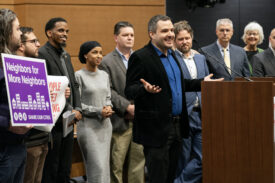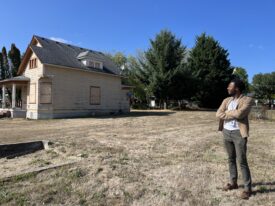 This piece by John Tierney in the New York Times Magazine is wrong in many ways, so it’s probably important to point out what’s right about it.
This piece by John Tierney in the New York Times Magazine is wrong in many ways, so it’s probably important to point out what’s right about it.
To summarize the article (we read, so you don’t have to!): Cars are great, high-tech roads are cool, people who don’t like new roads are condescending nanny-statists who oppose consumer choice, public transit is too expensive, and the only real solutions to traffic congestion and transportation financing are 1) to tax gasoline and 2) start charging people to use the highway—and to raise the tolls when the roads are congested.
Stripping out the inaccuracies, and the sneering—particularly about the “elitism” of smart growth advocates—the nut of the article is basically right. Cars are darned useful inventions; gas is underpriced; and congestion pricing really would be an effective way to reduce congestion.
The Puget Sound Regional Council is already experimenting with congestion pricing, outfitting a number of cars around the region with high-tech gadgets that track how and when people drive. The experiment pays people money if they drive less than they’re budgeted for—a reverse simulation of what it would be like to pay to drive. I’m eagerly awaiting the results—and suspect that congestion pricing, if implemented fairly, could ease rush hour.
Now, Tierney apparently believes that tolling highways would simultaneously ease congestion and pay for new highways, which would further ease congestion. Regardless of its (doubtful) merits, his vision—an upward spiral of highway building and ever-rising mobility—seems implausible. A Washington State Department of Transportation study found that tolling the entire network of major highways in the Puget Sound region could raise between $250 million and $450 million dollars per year. That’s almost enough to finance the reconstruction of the Alaskan Way Viaduct, SR-520, and I-5 over the next 30 years—enough to keep the old highways from falling apart, but not nearly enough to pay for new ones.
That said, the article has its merits. But it’s not often that I simultaneous agree with someone and want to tell him off, too.
(Post updated to fix broken link)







